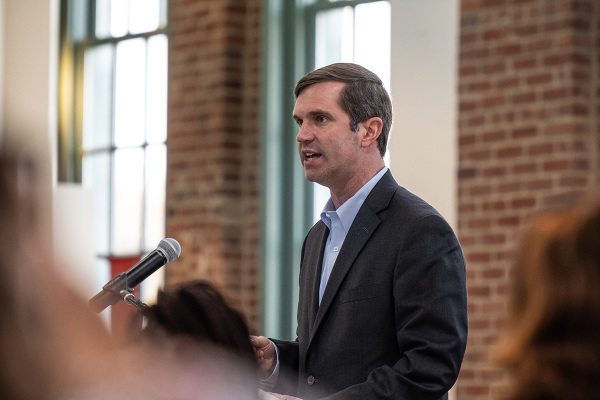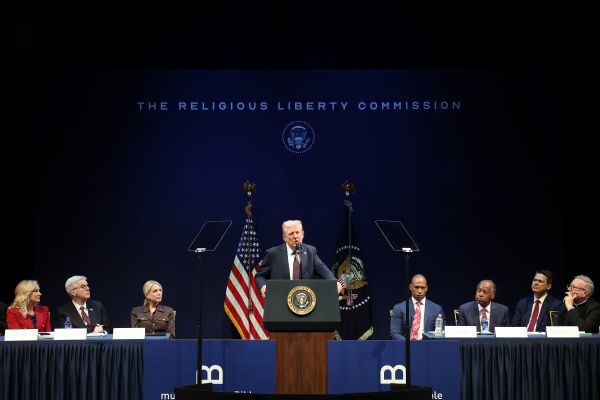Everything starts with a serve

Integrity. Serving. Teamwork. Excellence.
Those four words—the core values of the Fellowship of Christian Athletes—give us a foundation from which we can carry the message of Christ to coaches and athletes through the vehicle of sports. Through God’s provision, the ministry has grown beyond anything we could’ve thought or imagined over the past six decades.
While each of these core values is fundamental to what we do (and who we are as Christ-followers), all of us can “do immeasurably more” through serving. Think about it: No other action a person can take leaves as profound an impact on another as serving. It’s a basic, essential part of the daily Christian walk. Each day, we should be committed to serving others, simply putting their needs and wishes in front of our own.
It reminds me of a lesson I’ve taught for years at the beginning of each new season as coach of my daughter’s volleyball team: Everything starts with a serve. In volleyball, just as in tennis, the action always begins with a serve.
How great would it be if we adopted that mindset in our lives, starting every day with the thought of, “Who can I serve today?” It would be transformational in our families, workplaces, schools and communities if our thoughts, actions, attitudes and words were Spirit-led in such a way that we sought out—and acted upon—opportunities to be salt and light, serving others in all we do.
Paul states in Philippians 2:3-5 (ESV): “Do nothing from selfish ambition or conceit, but in humility count others more significant than yourselves. Let each of you look not only to his own interests, but also to the interests of others. Have this mind among yourselves, which is yours in Christ Jesus…”
These verses point us to another great example of serving in sports: offensive linemen in football. They are “The Greatest Position Never Seen.” Their names rarely appear in the box score, you rarely know their stats, and you probably don’t know their names until they’re called for a penalty. Yet, they work tirelessly in the trenches serving their team.
However, all those examples pale in comparison to the greatest example and teacher of servanthood: Jesus Christ.
In Philippians 2:7 (NIV), the Apostle Paul says that Christ took “the very nature of a servant” when He became flesh and lived among us. And in Matthew 20:28, Jesus said, “the Son of Man came not to be served but to serve others and to give his life as a ransom for many.”
Jesus’ entire life was one of service to those around Him, the most notable example coming when He washed His disciples’ feet on the evening of His betrayal (John 13:1-17). It was the perfect picture of the humility with which He served the disciples. And it was followed by the greatest act of service in the history of mankind when He went to the cross, died, and was resurrected three days later. He sacrificed all of Himself in order to save us.
His example of serving others is an inspiration to me as I seek to serve my family first, followed by all those God has put in my life as a coach, church and community member, and as a part of the FCA family. With service at our core, FCA staff members across the country and around the world are committed to serving coaches and athletes, coming alongside them to impact every team, campus and community by sharing the gospel, praying, and spending time in God’s Word.
Servanthood should be an essential aspect of our lives as Christ-followers. No other action a person can take leaves as profound an impact on another as serving.
If chances to serve are the outward actions of our faith, integrity is how our faith impacts us internally. Whether it’s the things you do when no one is watching, or the thoughts and feelings only you know exist in your mind, living a life of integrity is extremely personal, really only known by yourself and God.
The word “integrity” comes from the early 16th-century Latin word “integritas,” which means “intact” or “whole.”
Wholeness in our public and private lives is essential as followers of Christ. If the goal is to resemble Christ more every day, the words we say and our actions in public should reflect our thoughts and our actions in private. That wholeness is what the writer of Proverbs 11:3 (NIV) had in mind, writing, “The integrity of the upright guides them, but the unfaithful are destroyed by their duplicity.”
Going back to the dictionary again, I love one definition of integrity I found that said, “The qualification of being honest and having strong moral principles. It is generally a personal choice to hold oneself to consistent moral and ethical standards.” Living a life of integrity is a personal choice!
Every decision we make—large or small—must run through our own personal integrity filter, examining how it agrees or disagrees with our thoughts and beliefs. This was modeled in the purest of ways by my high school football coach. He was a living representation of integrity, the first man I knew whose beliefs and behaviors matched up every day. My life was radically changed when it intersected with his.
In much the same way, PGA Tour pro Brian Davis’ act of integrity impacted many lives at a tournament years ago. Golf is a great sport to examine an athlete’s integrity. After all, it’s the only sport that allows its participants to call penalties on themselves. Players must be well-versed on the extensive rulebook, which outlines when and how infractions occur and how to assess penalty strokes.
In 2010, at the Verizon Heritage event in Hilton Head Island, South Carolina, Davis touched a loose reed in a marshy area next to the green on the first playoff hole. He called a two-stroke penalty on himself. That self-imposed infraction effectively gave the tournament title to Jim Furyk, costing Davis millions of dollars and a chance at the victory.
A teacher from Texas saw Davis’ example of integrity and honesty and shared the story in her classroom. She then wrote to Davis. Later in the season, she brought her entire class out to meet him. He may not have won the event, but his example is still being used to impact lives years later.
What does integrity look like in your life? It truly is something that only you have access to and control over. As coach Tony Dungy said, “Others determine your reputation, but only you determine your integrity.”
I pray these words encourage you to seek out serving opportunities in your life, as well as look for any gaps that exist between your thoughts and actions in private and public. We must all ask God to fill those spaces with His support to help us to live a whole, complete life in Him.





















